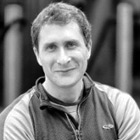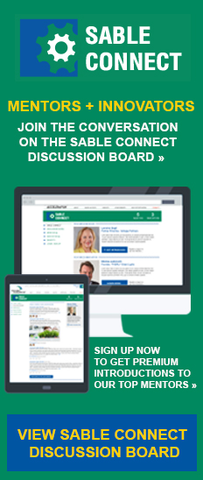expert views« Back to Expert Views Listings

To Become a Superstar, Improve Your Strengths (Not Your Faults)
Auren Hoffman, CEO, LiveRamp
To really differentiate yourself in this winner-take-all world, you should be focusing on improving your strengths, not your weaknesses.
Most people who set out to improve themselves focus on their faults. For example, here’s Bridget Jones’ list:
“Resolution number one: Obviously will lose twenty pounds.
Number two: Always put last night's panties in the laundry basket.
Equally important, will find sensible boyfriend to go out with and not continue to form romantic attachments to any of the following: alcoholics, workaholics, commitment phobics, peeping toms, megalomaniacs, emotional wits or perverts.”
While I don’t deny that it’s good habit to place your undergarments in the laundry bin, it is not the best way to achieve greatness. People who focus on their faults can eventually improve them to a point where they are no longer obstacles, but doing so will not propel them to success. A better strategy is to focus on one or two of the things at which you excel and hone those skills or talents to the point of excellence. Working on your faults might help you make a living, but honing your talents may help you change the world.
We are all judged on a variety of traits. We might have four bad traits, another four mediocre ones, and one or two for which we are admired. We all recognize the four at bad ones; we make New Year’s resolutions to improve them.
The impulse to focus on your weaknesses is a vestigial remain of an outmoded era in our evolution. Indulging that impulse won’t lead to success because we are in a modern winner-take-all world. In this world, outsized returns go to greatness, so it’s better to focus on one or two things at which you truly excel and strive to become great at them.
Going from good to great is really hard. But so is going from poor to mediocre. And if you have a predisposition or talent for a trait it’s likely to be something you love to do and you’ll enjoy the process of refining it.
If one of your really good traits is that you’re good-looking, you should focus on being great-looking, because in your category the spoils will go to a few people. So spend the money and time on those expensive haircuts, the rigorous fitness routine, and the flattering clothes.
Suppose you are really good at developing computer algorithms and really bad at showing up on time. It might take an X amount of effort to become really great at computer algorithms and let’s say it takes X/4 effort to become average at showing up on time. Both are improvements that increase your value, but being great at computer algorithms will pay exponential dividends.
Or let’s say you’re ugly but hilarious enough that strangers pay you to make them laugh. Working on your comedic skills will go a lot further than losing some weight. Being the funniest person in town is going to make you stand out.
Have you ever noticed that all the most successful people have massive, glaring weaknesses? Think of Bill Clinton’s well-known faults. But he has one or two traits in which he is world class. That’s all you need to be a superstar. Same thing goes for Martin Luther King Jr., Gandhi, Steve Jobs, and any other person that has changed the world. What does Tiger Woods do great? He hits golf balls long and accurately . . . and that’s what he will be remembered for. People -- all people -- have very obvious flaws. Instead of spending massive amounts of energy on those flaws, spend it on making yourself great.
Of course, it’s not as easy as I make it sound, or else everyone would achieve greatness. To be outstanding requires passion, dedication, and extraordinary commitment. The great pianist Arthur Rubinstein practiced as much as 16 hours a day at some point in his career. He said that if he missed practice for one day, then he knew it. But if he missed practice for three days, his public knew it.
For most of us it might be too late to be a concert pianist, a champion golf player, or a prima ballerina. However, we do have talents and natural abilities that, if honed, can propel us much further than remedying our faults.
« Back to Expert Views Listings
Other Expert Views:
Q&A with Donovan Neale-May, Founder, SABLE Accelerator, CMO Council
Q&A with Kathryn Sharfman, CMO and Chief Platform Officer, Sun Exchange
Q&A with Bernard Wolfsdorf , Founder & Managing Partner, Wolfsdorf Immigration Law Group
Q&A with Pieter van Schalkwyk, CEO, XMPro
Q&A with Steuart Pennington, CEO , South Africa - The Good News
Q&A with Pumela Salela, SABLE Advisory Board Member, Global Sourcing Council
Q&A with Prof. (JD) Jonathan Jansen, Vice-Chancellor and Rector, UFS UV
Q&A with Pieter de Villiers, Founder and CEO, Clickatell
Q&A with Anthony Stonefield, Managing Director, Gramercy Millennium Group
Q&A with Pumela Salela, SABLE Advisory Board Member, Global Sourcing Council
Q&A with Faheem Kajee, Co-Founder, Found (Previously Pashash)
Q&A with Jake Davidow, Founder, Teach Me Sushi and Teach Me Chocolate
Q&A with Eran Eyal, Co-founder, Springleap
Q&A with Bradley Smith, Co-Founder, BusinessOptics
Q&A with Nick McCreath, Co-Founder, Super Simple Survey
Q&A with Barry Kayton, Founder and CEO, Cognician
Q&A with Michael Leeman, Entrepreneur and Investor, RunwaySale, Gyft and Miombo Consulting
Q&A with Anita Nel, CEO: Innovation and Business Development, InnovUS, Stellenbosch University
Q&A with Laurie Olivier, Partner - 4Di Capital, Board Member and Chairman, HealthQ Technologies
What You Know Now Beats Who You Know, Auren Hoffman, CEO, Rapleaf

